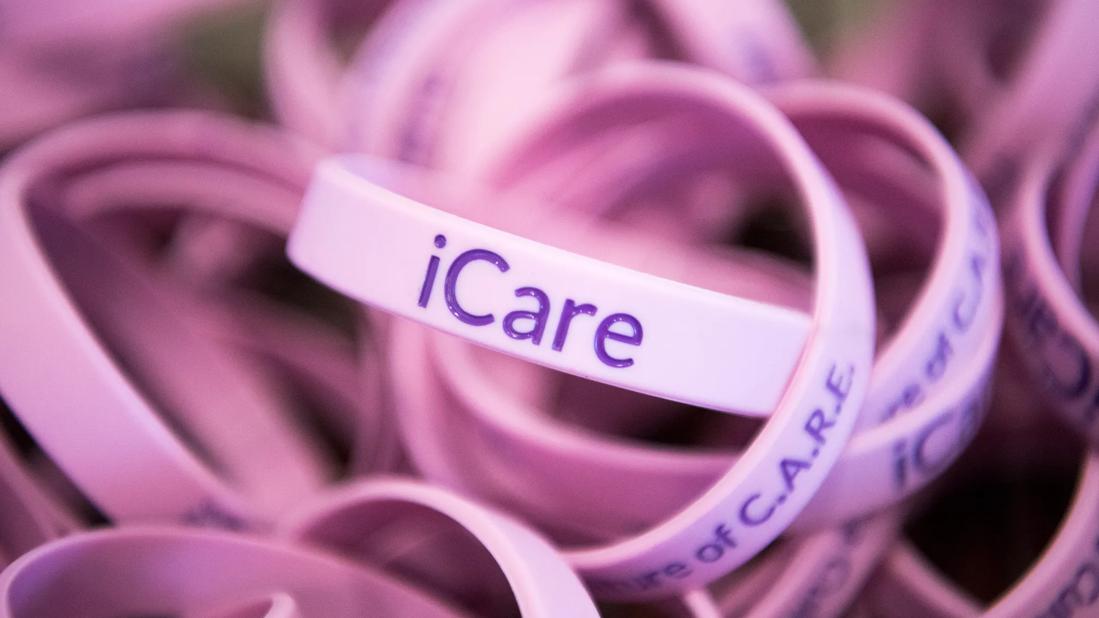Online course supports emotional well-being

Image content: This image is available to view online.
View image online (https://assets.clevelandclinic.org/transform/37303ae1-544a-4783-8f1e-9701b74f60dc/CCC-1806993_01-23-20_012_RN-jpg)
icare bracelets
It’s no secret that stress among caregivers can have significant personal and professional consequences, including burnout, decreased performance, depersonalization and even poor patient outcomes. Yet, although the physical and emotional demands of caregiving are well-known, some caregivers may be reluctant to seek help in times of grief or hardship.
Advertisement
Cleveland Clinic is a non-profit academic medical center. Advertising on our site helps support our mission. We do not endorse non-Cleveland Clinic products or services. Policy
To address these challenges and the evolving emotional needs of its staff, Cleveland Clinic has developed an on-demand, online learning program designed to equip employees with the tools needed to better care for themselves and their peers.
“By their very nature, caregivers are focused on meeting the needs of other people, and nowhere was this more apparent than during the COVID-19 pandemic – the effects of which we’re still grappling with today,” says Amy Freadling, PhD, LPCC-S, CEAP, BCC, Executive Director of Caring for Caregivers at Cleveland Clinic. “This experience helped us recognize the need to prioritize the well-being of our caregivers in a way that we hadn't before.”
Provided by Cleveland Clinic’s Jack, Joseph and Morton Mandel Global Leadership and Learning Institute, iCare is designed to help caregivers understand the widespread effect of trauma and stress in the workplace and provide them with the skills necessary to render an appropriate, healthy response.
The program, which is voluntary and self-paced, covers a broad range of topics, including differentiating between trauma and stress, identifying common signs of burnout and practicing self-compassion. It also teaches caregivers how to support their peers by identifying emotional distress, building better habits and using effective communication techniques like active listening.
“One doesn't necessarily need a diagnosis of post-traumatic stress disorder to feel the significant effects of stress,” Dr. Freadling says. “Understanding this can be normalizing and validating for people who may not have the words to describe what they're experiencing. We’ve tried to create a program that makes our caregivers feel seen and heard – a fundamental component of professional and personal happiness.”
Advertisement
Dr. Freadling explains Cleveland Clinic also developed a separate iCare track for leaders, which is designed to help them recognize their obligation to support and direct their teams.
“A recent Deloitte survey shows that 70% of employees say their manager has tremendous influence on their mental health and well-being – more influence than their doctor or therapist,” she says. “Educational programs like these can serve as important reminders for clinical leaders, in particular, who carry specific role-related responsibilities that aren't always easily recognized.”
Dr. Freadling notes that both leaders and caregivers alike are deriving benefits from iCare. In a recent internal survey, 95% of participants said the program enhanced their well-being.
“iCare was created specifically to provide our employees with timeless, relevant tools,” she adds. “I’m very proud that we were able to create an educational course that is so meaningful to the people for whom it was intended.”
Advertisement
Advertisement
A look at how personal stories sparked an enterprise-wide cultural reset
Annual event galvanizes leaders and inspires excellence
Peer collaboration, flexibility amplify learning
Volunteer program invites caregivers to serve as patient navigators
Regional organizations collaborate to address nurse faculty shortage
How wellness habits help nurses flourish
Making a difference by putting empathy into action
Interdisciplinary program fosters high-performance teams